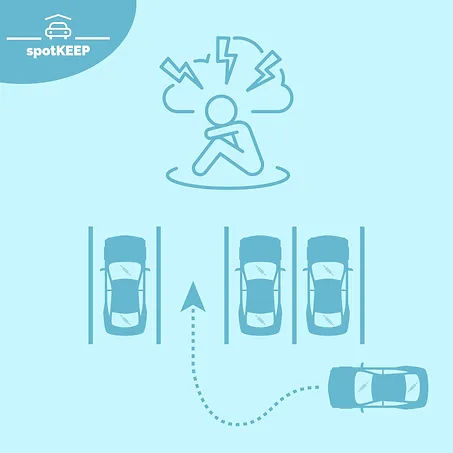Parking can be a source of stress, frustration, and anxiety for many people. From circling the block to fighting for a spot in a crowded parking lot, the process of finding a parking space can take a toll on our emotions and behaviors. But what is it about parking that affects us so deeply? In this post, we’ll explore the psychology behind parking stress and how it affects our behavior and emotions.
In addition to the negative impact on our mental health, stress related to parking can also lead to physical health problems. Chronic stress has been linked to a range of health issues, including high blood pressure, heart disease, and weakened immune systems. When we are stressed, our bodies produce cortisol, a hormone that prepares us for fight-or-flight responses. While cortisol can be helpful in short-term stressful situations, prolonged cortisol production can have detrimental effects on our health.
Furthermore, the stress of parking can also affect our behavior. It may cause us to become more aggressive or impatient while driving, putting ourselves and others at risk. It can also lead to us giving up on finding a parking spot altogether, potentially causing us to miss important appointments or engagements. The stress of parking can even deter people from going to certain places altogether, limiting access to important resources or causing them to miss out on valuable experiences.
On the flip side, finding a good parking space with low parking fees can be a source of great satisfaction and relief. Whether it’s a spot right in the ideal parking location or a well-hidden spot in a crowded parking garage, the feeling of securing the perfect parking spot can boost our mood and reduce our stress levels. This sense of satisfaction is often accompanied by a feeling of accomplishment as if we’ve achieved a small victory over the parking gods.
Another factor that can influence our emotions and behavior around parking is our sense of safety and security. Finding a safe and secure parking spot in some areas can be challenging, particularly at night or in unfamiliar surroundings. This can lead to anxiety or even fear, which can influence our decisions about where to park or whether to take our car at all.
The rise of technology has had a significant impact on the psychology of parking. Apps like spotKEEP have made it easier to find and reserve parking spots, reducing the stress and anxiety associated with finding a spot on the fly. These apps also provide additional information about parking spots, such as their location, availability, and even reviews which can help to boost our sense of security, prevent parking citations, and increase our confidence when parking.
In addition, some apps use gamification and rewards systems to incentivize users to park in certain spots or at certain times, which can add an element of fun and competition to the parking experience. Apps like spotKEEP can help shift our mindset around parking from stress and frustration to opportunity and even excitement.
The psychology of parking is a complex and multifaceted topic that touches on many aspects of our emotional and behavioral lives. From the stress of finding a spot to the satisfaction of securing a good spot, parking can have a profound impact on our mental health and well-being. By understanding the psychology of parking and the factors that influence our emotions and behaviors around parking, we can make better decisions about where and how to park, and ultimately lead to happier, more fulfilling lives.










